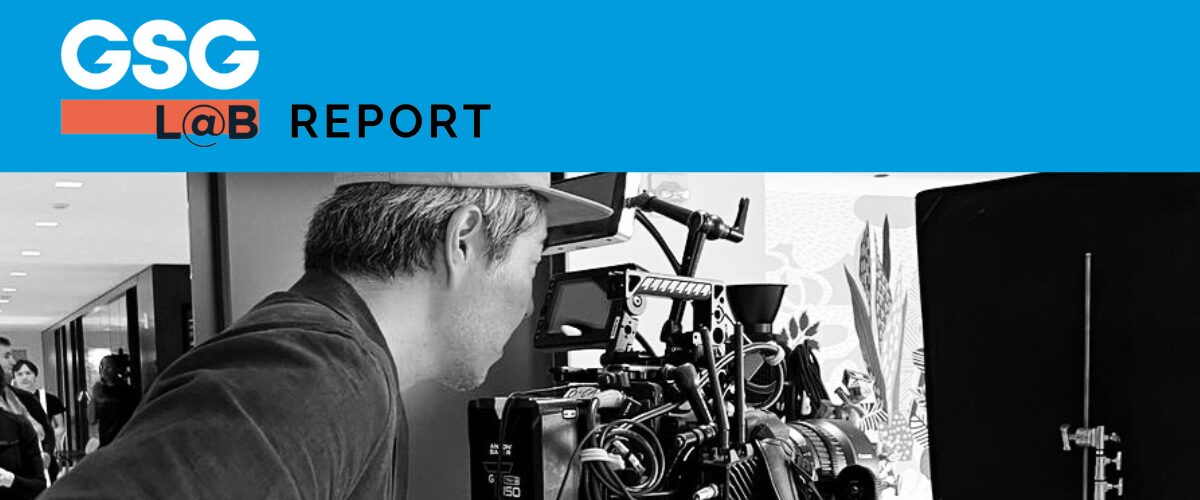
September 13, 2024
Welcome to The L@B Report
Welcome to this month’s issue of The L@B Report from GSG, bringing you news and insights from the intersection of digital media and public affairs. In this issue, we discuss Brazil’s X ban, the arrest of the CEO of Telegram, and a massive fall television and digital ad buy from the Harris campaign.
In the News
Brazil Bans X After Musk Ignores Court Orders
Further sanctions could be coming from the European Union
In late August, Brazilian Supreme Court Justice Alexandre de Moraes ordered the country’s telecom agency to to block access to X after Elon Musk refused to comply with court orders to suspend certain accounts. Justice Moraes said Musk and X intended to “allow the massive spread of disinformation, hate speech and attacks on the democratic rule of law, violating the free choice of the electorate, by keeping voters away from real and accurate information.”
Days later, a five-justice panel voted unanimously to uphold the order, issuing strongly worded opinions saying that the blackout of X complied with the law and was necessary to enforce the nation’s rules against a foreign company that was violating them. Under rules passed in 2022, the Supreme Court handed its elections chief the power to combat false information online by ordering tech companies to remove online posts and videos.
Takeaway
The blackout of X in Brazil shows there may be legal ramifications to Elon Musk’s free speech absolutism and vision of turning X into a digital town square where anything goes. In addition to the blackout, the justice froze the Brazilian assets of Musk’s Starlink satellite internet service as it tries to collect $3 million in unpaid fines against X. The site will stay shut down in the country until it complies with court orders and pays the fines.
As Fortune notes, “Musk’s woes are hardly limited to Brazil as he now risks possible EU sanctions in the coming months for allegedly breaking new content rules.” In fact, the European Union could soon decide to act against X as part of an ongoing probe into whether the platform is breaching the EU’s content moderation law, the Digital Services Act (DSA).
Telegram CEO Pavel Durov Arrested in France
Arrest tied to Telegram’s loose content moderation and illegal activity on the app
French authorities have arrested Pavel Durov, the CEO of encrypted messaging app Telegram. Telegram is one of the world’s largest messaging apps, with 950 million users worldwide, and a rival to Meta-owned WhatsApp. Authorities charged Durov with complicity in managing an online platform to enable illegal transactions; complicity in crimes such as enabling the distribution of child sexual abuse material, drug trafficking and fraud; and a refusal to cooperate with law enforcement.
Takeaway
Telegram’s loose content moderation policies, and ability to send messages with end-to-end encryption, have long made it an attractive platform for cybercriminals, terrorism organizations, and drug dealers. The arrest of Durov has sparked outcry among anti-censorship advocates, perhaps most notably from Elon Musk, who made numerous posts on X slamming the arrest.
The charges against Durov certainly raise questions about how other social media companies and executives could be held accountable for the content and activity on their platforms. With Elon Musk’s confrontational posture against regulators, it will be interesting to see what, if any, enforcement actions the EU takes against the world’s richest man.
Harris Campaign Announces $370 Million Fall Ad Push in Key Battlegrounds
Her campaign plans to spend more on digital ads than television
The Harris campaign announced it booked at least $370 million worth of television and online ads in key battlegrounds to run between Labor Day and the November election. The campaign is reserving $170 million in TV ads and $200 million for digital ads on streaming platforms like Hulu, Roku, YouTube, Paramount, Spotify, and Pandora.
In addition to Harris’s announcement, The Current digs into how both campaigns are finding efficiencies with streaming ads and are investing heavily in ad-testing.
Takeaway
The Harris campaign’s choice to spend $30 million more on digital ads than television ads may be the first time a major presidential campaign has spent more online than over the airwaves – and it makes sense in today’s fractured media environment.
The Current’s article also shows how the presidential campaigns, Harris’s in particular, are smartly using streaming platforms, such as Roku and Hulu, to more efficiently reach voters. In addition, the campaign’s focus on ad-testing is a smart way to measure whether the ad creative is having the desired impact before spending against it.
As the campaigns march toward Election Day, it will be interesting to see how much more each devotes to digital with the late money that usually comes in online in the final months of the election.
More from GSG
Climate Week is just around the corner, and we have new insights from our top research experts on the subject.
Climate Power, EDF Action, LCV Victory Fund, NRDC Action Fund, and GSG partnered on a new report exploring overall attitudes on climate and clean energy by simulating a debate between Democrats and Republicans on the issue. The data couldn’t be clearer: climate and energy are winning issues for Democrats, especially with swing voters who will decide this year’s election.
This issue of The L@B Report was put together by Ryan Alexander.
Follow us on Instagram for more updates!